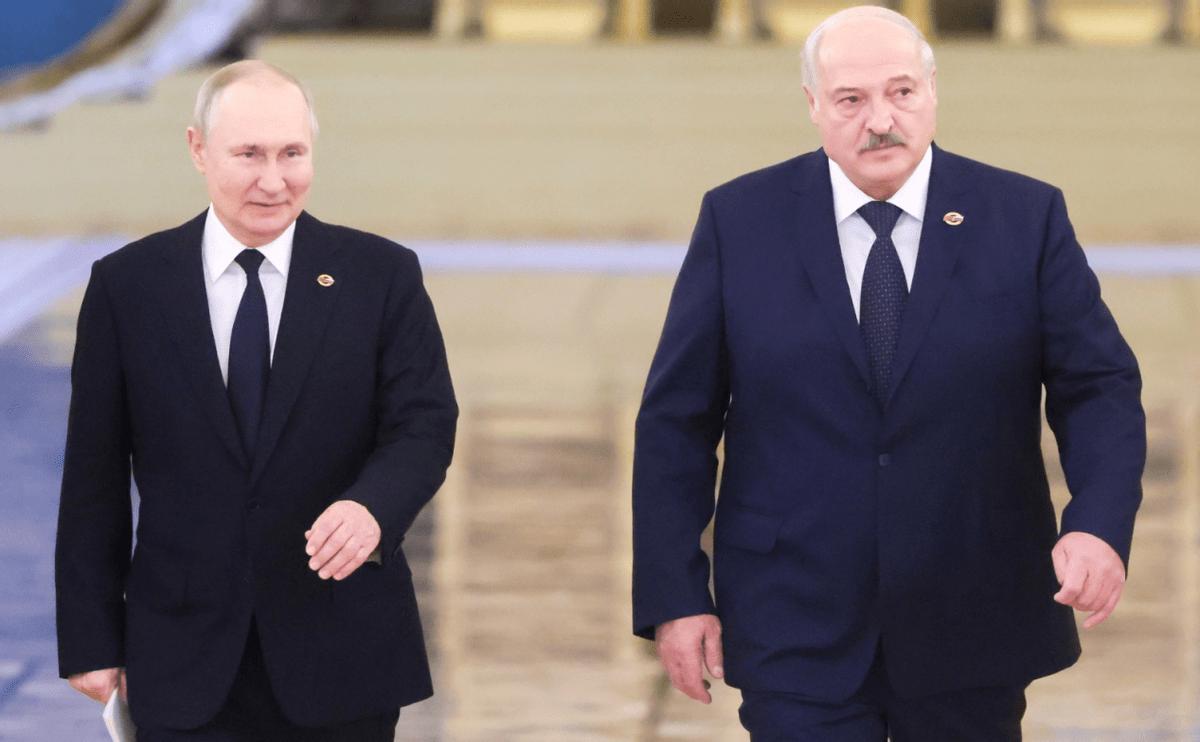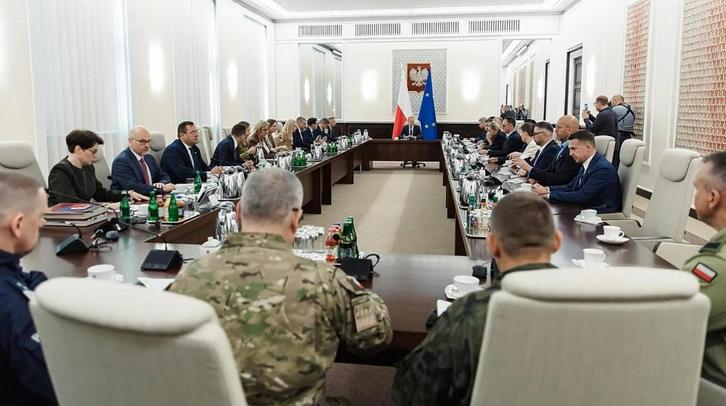Nato countries are approaching the brink of troops, and Russia also finds "foreign aid". The direction of the Russian-Ukrainian conflict seems to be moving in an unoptimistic direction.
Regarding the emergencies of "Russian drone entry", Poland responded fiercely and showed the momentum of "confrontation with Russia". While the Russian side expressed its willingness to communicate and clarify misunderstandings, it also held joint military exercises with Belarus as scheduled to prove that it was not "isolated and helpless." Poland is not outdone. After blocking the border with Belarus, it also announced that it would send 40,000 soldiers to garrison.

[Poland is affected by conflict spillover]
The Russian-Ukraine conflict overflowed, and Belarus and Poland could not help themselves
From an objective perspective, Russia and Belarus have been deeply bound by military bonds over the years, and nuclear weapons cooperation has made the two countries a "community of shared future". However, Belarus itself is not strong in military strength. If it really wants to send troops to help Russia fight, the air will leak in its backyard, and Russia may not dare to take this risk.
But the problem is that the fire of the Russian-Ukrainian conflict has begun to "out of control". Belarus is sandwiched in the middle, politically isolated by the West, economically sanctioned, and security has to "block the gun" for Russia. Whether it is involved in this conflict does not seem to have the final say.
Poland's situation is also not much better. It is separated from Russia by Belarus. At the beginning of the Russian-Belarus military exercise, the nerves on the Polish border would be tense.
By the way, Russia and Belarus' military exercise focused on "cross-service command" and "curbing the aggression actions of alliance countries", which was clearly aimed at NATO. As a NATO member state, Poland naturally panicked when he heard it, fearing that it would become the first "contained alliance country."

[Hold exercises with Belarus, Putin proved that he was not isolated and helpless]
So, closing the border, transferring troops, and even moving out of Article 5 of NATO is not a temporary intention, but Poland feels that Russia's threat has changed from "possible" to "in front of us".
However, NATO, which NATO sees as “relying on”, is quite unreliable. Poland claims that the crossing of Russian drones by Russia is an "aggression". According to NATO rules, as long as it is considered an "armed attack", all member states must help.
But NATO refused to accept the challenge, insisting on "not reaching the terms threshold" or "maybe an accident", and was very resistant to intervening in the conflict.
In this way, the Russian-Belarus military exercises and Polish mobilization are to put it bluntly, which is the inevitable result of the spillover of conflict. In the past, the Russian-Ukrainian armies confronted each other, but now it has become the Russian-Belarus alliance and the NATO eastern wing "glazed" at each other.
Once this "edge ball" confrontation begins, there will only be more and more people behind it - today the drone crosses the border, tomorrow it may be a missile launch, and the day after tomorrow it may be a small-scale ground friction. Belarus and Poland are not redundant, they know that they are standing on the "front line" of conflict overflow.

[NATO held a meeting overnight, no actual action]
After Trump came to power, NATO "people's hearts are dispersed"
Speaking of this, NATO, as a military alliance that should "hang out to keep warm", has now become like a "grass team" because of the United States and Europe's separate abacus.
The differences between the United States and Europe are mainly reflected in the issue of attitude towards Ukraine. Europe's position is very clear: it must be supported to the end, except for the direct consequences, at all costs.
In fact, from the beginning of the conflict to the present, all previous NATO summits have been shouting "Promoting Ukraine", because Europeans always have a kind of "anxiety": if Ukraine cannot withstand it, Russia's next goal may be the Baltic Three Kingdoms, or even Poland, and then "pointing the entire Europe."
So Europe would rather "save for money" than give Ukraine weapons and train soldiers, for fear that the "domino" would hit it in the foot.
But the United States does not seem to think so. To Trump, Ukraine is more like a "tool person". On the one hand, the United States wants to consume Russia through aid to Ukraine, but it does not want to spend too much real money;
On the other hand, the domestic political trend of the United States has changed. Many people in the Republican Party feel that "the money to aid Ukraine is wasted", and Trump has directly imposed tariffs on Ukrainian goods. This operation made Europe very angry, but it was helpless.
The more core contradiction between the two sides is the difference in NATO's positioning. Europe regards NATO as a "protective umbrella", but it feels that paying more "protection fees" is unbearable, and the United States should pay for "common values". But the Trump administration regards NATO as an "unprofitable business" and pushes the target of 5% military expenditure. To put it bluntly, it is forcing Europe to buy more US arms, or accept the reality of "the United States lets go".
Europe bargained, and the United States put pressure on different ways. After a while, all the trust between the two sides was gone. As a result, NATO became a "scattered sand". No one was willing to stand up first when encountering problems. There were more people saying tough words and few people doing practical things.
Nato dares to say that Polish drones cross the border are "invasion", and they don't want to really help Poland stand out, so they can only play word games - saying that drones crossing the border are "accident" and explain "collective defense" in ambiguous way. This "mixing" approach makes NATO more like an "empty shelf", and member states are even more at ease.

[Trump's "uncooperation" makes other NATO member states embarrassed]
Ukraine "looks forward" and waits for the unreliable NATO
Ukraine, one of the core reasons for the "split" between the United States and Europe, is also hard to say. Adding to NATO was originally the biggest "dream" of the Zelensky government, but now it seems that this expectation is about to fail.
On the one hand, even NATO member states like Poland, which have "right roots" and "heavy roots" have to push left and right when encountering "danger", which is equivalent to saying to Ukraine, "You are responsible for your own risks, and NATO will not guarantee the bottom line."
On the other hand, although Europe has been aiding Ukraine, its aid strength is affected by the United States - once the United States suspends intelligence sharing, Europe's reconnaissance capabilities will be discounted; once the United States imposes sanctions, European companies will be damaged.

[Zelensky saw the quality of NATO with his own eyes]
Ukraine is now like rowing a boat in the sea, surrounded by reefs, and the "lifeboat" in the distance shouts "providing all support". But when it is really dangerous, it either pretends to be invisible or says "row yourself".
Its only choice is to paddle hard and pray that you will not be knocked over by the waves - as for when it will be able to dock, no one knows.
The Russian-Ukraine conflict has been fighting for more than three years, not only causing heavy casualties on the battlefield, but also completely exposes the essence of NATO. It can be foreseen that Russia and Ukraine will continue to fight, and the next one will be involved, and I don’t know who will be.














